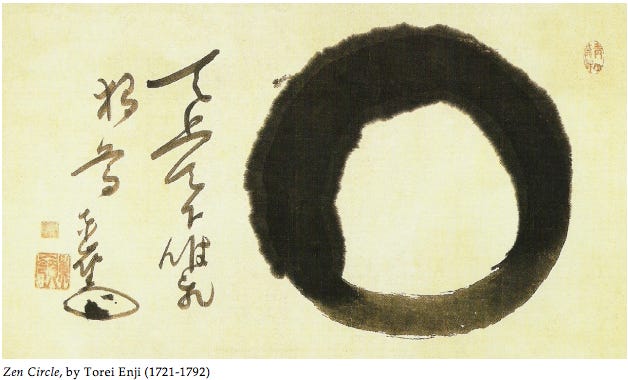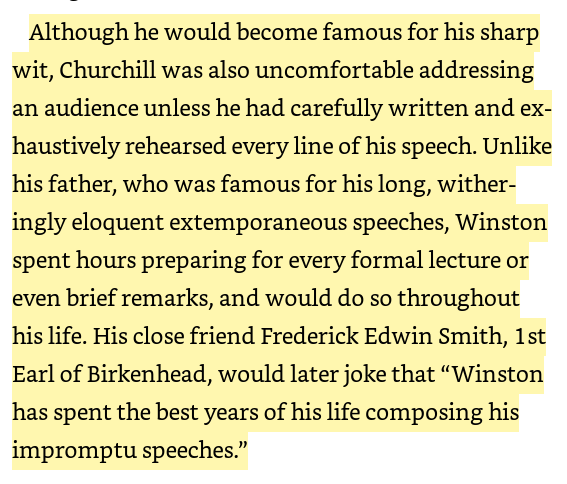Hi there,
Happy new month.
December, unlike any other months, is a self-examination month where we roll back the memories, reflect on milestones, wince a little bit more on missed opportunities (coulda woulda shoulda), and of course wear our rose-coloured glasses for continuity sake.
Excitement built up at the beginning of the year might feel like a distant memory. Due to overexertion in the weeds trying to make the dream a reality. Bruises of war. The emptiness left by goals fulfilment, abandonment, pauses. Laggedness of successful outcomes…
It with this feeling in mind, that I’d like us to examine the concept of Shoshin.
Etymology: A combination of two Japanese characters: sho (“initial”) and shin (“mind”).
It is an attitude of openness, eagerness to learning, and lack of preconceptions when starting an endeavour, even when studying at an advanced level, just as a beginner in that subject would.
Shunryū Suzuki, a Buddhist monk, the first to set up a monastery outside of Asia, in the opening line of his book Zen Mind, Beginner’s Mind noted
In the beginner’s mind, there are many possibilities, but in the expert’s there are few.
It is very rare to come across a better opening line in a book. In a single stroke, the simple sentence presents one of the most important dips (in and out) in life.
Here we go!!
初心
Curiosity as a standalone trait is one of the most important characteristics I look for in friends. It’s a double-edged value sword in itself. Curious people question a lot, and a mix of the right and wrong questions bears a lot of interesting answers. So normally, they’re a tard more knowledgeable than the average. A second-order effect of that is that I get to be on the receiving end of those questions. A bit selfish eeyy. ?
Curiosity and interestingness are hip sisters. The more curious, the more interesting.
Digging deeper, curiosity is a by-product of having a beginner’s mind. Shoshin.

A lot of interesting people constantly gravitate in and out of the expert’s and beginner’s hat out of the acknowledgement that
As we develop knowledge and skills, our minds become more closed to new ideas. We tend to hold on to things we have learned, only to proven solutions, and not truly open to new ideas.
When we gain experience, our beginner’s state of mind tends to carve in, and this sets up to our own detriment.
Slow Thinking
One of the key behavioural traits listed on my website is that I’m a “slow thinker” inspired by my Spanish teacher Javier Serrano Aviles. To some of you, this might come across as strange and perhaps a disadvantage in a fast-paced world.
I like to think of it as a necessity in a beginner’s mind.
Conventionally, people say the first answer is usually the most honest, but it’s rarely the case. Our first thoughts are usually the most outdated. Or like Javier used to tell us in class “Your first thought is the most stupid.”
Why?
Our first™ is often the low hanging fruit. And the low hanging fruit is usually borne out of the seed we planted long ago. In other words, the first thought is usually the one we came up with a long time ago and is an automated knee-jerk response used in place of thinking.
The practice of “slow thinking” is simply digging deeper into our minds. To revisit the basics, first principles if we may. To process information as if it were the first time of our hearing. To say, “Hmmh. I’m not sure, let me get back to you.”
Is it possible to be interesting, without being a slow thinker? I don’t think so.
Neil DeGrasse Tyson, America’s most eloquent scientist, says practically everything he says in public, he’s already written down. By writing frequently, he’s honed his ability to speak rhythmically.

It’s in those moments spent introspecting, composing, learning the foundations, that we trigger the beginner’s mind.
Interesting people are the more curious and better practitioners of Shoshin.
Forget Everything sometimes
Shunryu Suzuki advises us to forget everything sometimes. Going back to the beginning and restarting our minds. Retracing our excitement for learning as children. Remembering the optimism at the beginning of a business.
It is important to forget the temporal expression, first thought, or else you will think, “This is it”. But this is not it. This is it, but this is not it. For a while, this is it, for the smallest particle of time, this is it. It is not always so. It is not it. When you forget yourself, you will actually take the true activity of the Big Existence or Reality. When we realize this fact, there is no problem whatsoever in this world.✓
Best Stuff I Read
1. Shunryu Suzuki
Page 76 of Zen Mind, Beginner’s Mind.

2. Twenty Years
Imagine you are Aladdin. You rescue the magic lamp and when you finally rub it, the genie that appears isn’t interested in granting your three wishes. Instead, he gives you a different gift: the date that you will die.
The good news is that you’re not going to be wiped out by COVID. The less good news is that you have twenty years left.
At what point in your life would that be a welcome forecast?
But what if you were told today? What would you change? What would you stop expending your finite energy? Where would you stop wasting your time?
—> Full Post.
3. The True Purpose of Schools
The anti-thesis of school, as we know it.
Schools exist to standardize children: to get them to replicate society’s memes as faithfully as possible under threat of punishment.
But it goes deeper than that.
Consider a child who is interested in, say, astronomy. Most elementary schools do not offer astronomy classes. And even if they did, it is highly unlikely that any given child would happen to be interested in all of the things that are shoved down his throat year after year, at just the right time. A child’s interests don’t evolve in sync with the school’s schedule. If the child is lucky, he will be genuinely interested in a few of the topics any given year, but never even close to all of them.
So, the child wants to learn about astronomy—but doesn’t get to. Instead, he is forced to learn other things he isn’t interested in. Day in, day out, for some 12 years. As Popper said, he has to learn answers to questions he didn’t ask.
A child is then faced with two options: to go insane, or to learn to cope with the situation. So, what can one possibly do in such a situation to stay sane? I see only one solution: one must learn to put one’s own interests on the back burner and prioritize other people’s interests—in this case, the teacher’s, and society’s at large. One must learn to coerce oneself to neglect one’s preferences. I think that is what school is really for: not just to standardize children, but to break them, too, to place others’ interests over their own.
—> Full Post.
What I’m Watching
Opening Lines: You never know what’s going to cause the next discovery to be made, is it a Eureka moment in the middle of the night, is it some small inconsistency in a measurement that you made? Isaac Asimov famously noted, “The greatest discoveries in the history of the world, weren’t somebody burning the midnight oil saying ‘Eureka!!’ It was somebody looking at the data and saying ‘That’s odd’.
If you’re enjoying my Bits by Muigai newsletter, I’d love it if you shared it with a friend or two. You can send them here to sign up and get a feel of the past editions.
Always feel free to shoot me an email at (muigai@solomonmuigai.com) with questions, critiques, half-formed ideas in need of a jack to bring to life, or just to say hey.
Until next Saturday, have a happy weekend.
Solomon Muigai.